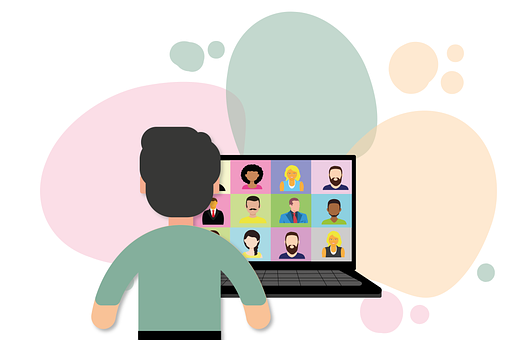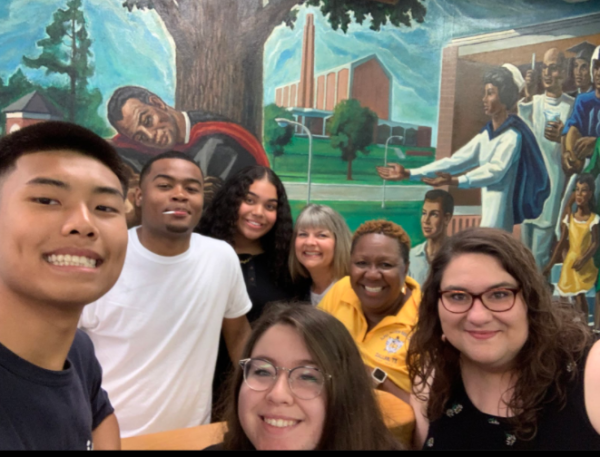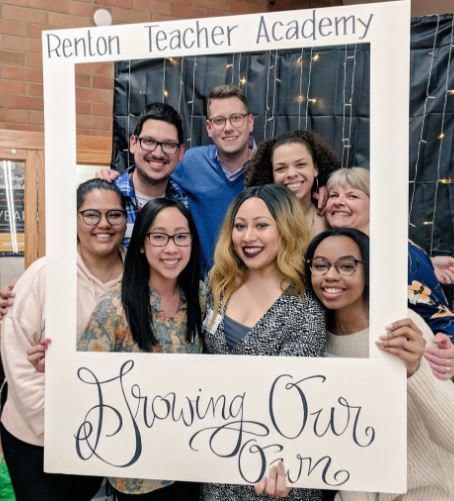Since the Coronavirus pandemic began in March 2020, teachers and students have been thrust into remote learning. A year has passed since classrooms have become Zoom rooms and while some students are starting to go back, others continue to learn from home — creating an opportunity to reflect on this journey.
An article titled “The Crushing Reality of Zoom School” had the tagline:, “We’re only a few weeks in. We can’t keep doing this.” This was an interesting read because at the time of the article (September 2020) we had no idea how things were going to play out. The author talked about the toll “Zoom school” was taking on families, and the difficulties his children faced engaging with online learning.
However, I had one striking takeaway: the lines between home and school have become infinitely blurred. The author wrote, “There’s a lot of humanity visible through the Zoom windows. Every day we log on—teachers, children, parents—and, invited or not, we enter tiny portals into each other’s lives.”

Remote schooling has invaded students’ most personal parts of their lives without their consent. Students with complicated home lives suddenly found their peers joining them in spaces they wouldn’t normally share with the world. For many, their personal spaces were gone. In turn, cameras went off, participation dropped, and for some, showing up to school was no longer an option for them.
As an educator, teaching to little black squares was disheartening. With lack of nonverbal communication, we struggled to know if our students were connecting to anything we were saying, or worse yet, if they were even physically at their computer. But, it’s not our place to force ourselves into spaces we wouldn’t normally be in or command that we be welcomed into those spaces.
Nonetheless, it is our job to build connections and trust with our students in whatever ways we can, and that can absolutely still be accomplished, even through a Zoom window.

While attending CWU for my undergrad, my journey there led me to becoming a part of the advisory board for the Renton School District Teacher Academy. In short, this means I get the privilege of watching CWU teacher candidates and Renton Teacher Academy (RTA) students interact and learn from each other through campus visits to CWU. I’ve witnessed these gatherings many times and it’s not an exaggeration to say that each experience leaves me energized and reflective upon my own values and practices around education.
During a recent online gathering, several RTA students participated in an informal student panel where they answered questions focused around building connections with their teachers. Students were asked to give their insights to CWU teacher candidates on how teachers can build positive classroom environments, and create trust and connection with their students in these unprecedented times.

One RTA student remarked “I like when teachers are open and honest about who they are instead of just putting on a teacher persona.” Other students echoed this sentiment saying, “I like when a teacher owns up to their mistakes and lets us know it’s okay for us to make mistakes too.” Another RTA student admitted, “It’s important for the teachers to make meaningful connections and pay attention to their students without over-analyzing them and making assumptions.” Hard to do in the classroom, even harder to do when we are in their living room seeing firsthand things that can affect our implicit bias as educators.
Story after story, it became clear that trust and validation comes from teachers being their authentic selves and offering authentic care to their students.
RTA students shared all the remarkable things their teachers were doing to make them feel seen and connected through remote learning. One student gushed about “Rant Fridays” where students are to turn on their cameras and go off about anything they want. Another student shared that her teacher has students send in their favorite songs so she can make a playlist of music for class that celebrates the music preferences of everyone.
This was a message of hope.
These bright young minds all have the ability to see beyond the horizon. They know someday this pandemic trauma will all be behind us and – in the near future – they themselves will be in our shoes. Whether a CWU teacher candidate or a high school student with a dream of their own classroom, pandemic teaching is creating a cohort of multi-talented educators. Teachers who have lived through disconnection will know how to engage their students in ways we couldn’t. Educators who have faced adversities will lean into their resilience to become stronger and more adaptable in the classroom.
The future is bright.
This blog is dedicated to the incredible students of the Renton School District Teacher Academy and their fearless leader, Carla Smith. If you want to learn more about their program, click here.
Thank you for sharing this. It is so important to be a part of a strong, supportive community during this time. The RTA community sounds like something many teachers are in desperate need to do this. It is so great to see people coming together to share ideas and resources.
I have a fluctuating number of students who come to me daily for math and ELA support. My biggest frustration is seeing the students struggle with the online curriculum but refuse to come to me to get help. I write up notes from the meetings I have with the students who do come, and I email them to both the students who attended and the students who should have attended.
I liked the reminder that students “like when a teacher owns up to their mistakes and lets us know it’s okay for us to make mistakes too.” In my brick and mortar classroom, I participate with other classes in Market Day. Students earn Kragen Bucks for a variety of things. Periodically during the year they bring in items they have made and sell them to each other, using Kragen Bucks and other class money.
I told my students in my Zoom sessions that in my normal class, if a student caught a mistake I made, I would give them a Kragen Buck. I said I was so sorry I couldn’t do that online. Well, they begged to differ. Now if I make a mistake and they catch if, they say, “I get a Kragen Buck!” They keep track of their score. They love accumulating the points, even if the points don’t go anywhere.
This line is something we all need to remember: “Remote schooling has invaded students’ most personal parts of their lives without their consent.”
I think about this when I hear about teachers “requiring” cameras to be on. Yes, selfishly, I’d rather have cameras on so I can get those facial cues of learning, confusion, attention… but that is selfish considering my zooms force themselves into my students’ homes on “my” terms, not theirs. One of the many long-term negatives of all this is that I worry it gives schools and employers (all sectors, not just ed) the sense that they have the right to access people whenever and wherever it fits the needs of the employer. This is profoundly dangerous, and I hope the kids educated during covid push back fiercely on that when they enter the workforce and encounter bosses who force themselves past basic boundaries of worker time and space.
And thank you for the reminder about authentic care. That matters big time.